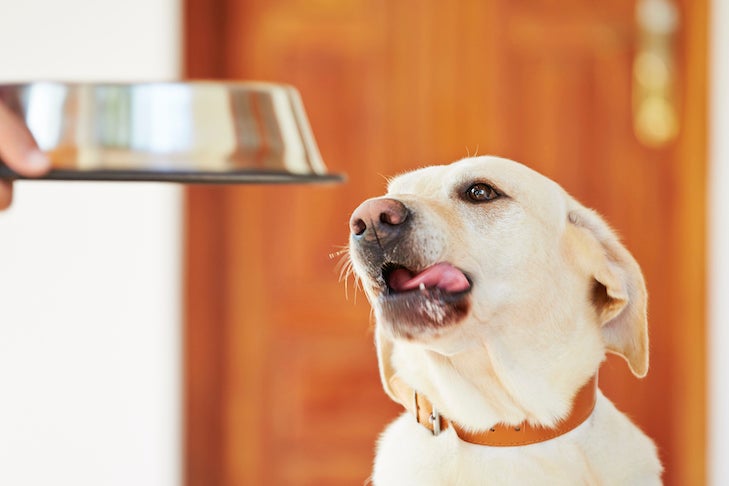Dogs can enjoy honey in moderation, but it’s crucial to understand its benefits and potential risks before adding it to your dog’s diet. Honey is packed with natural antioxidants and can aid in soothing allergies or digestive issues. However, not all dogs should indulge in this sweet treat, especially puppies or those with compromised immune systems. To learn more about the advantages and considerations of giving honey to your furry friend, check out The Benefits of Honey for Dogs.
Key Takeaways:
- Moderation is Key: Dogs can have honey in small amounts, but excessive consumption may lead to obesity or dental issues.
- Health Benefits: Honey may provide natural energy, help soothe coughs, and support digestive health in dogs.
- Risk of Botulism: Always avoid giving honey to puppies or dogs with compromised immune systems, as it can pose a risk of botulism.
Nutritional Benefits of Honey for Dogs

The nutritional benefits of honey for dogs are quite remarkable, provided it’s given in moderation. Honey is not only a natural sweetener but also a powerhouse of nutrients, making it a beneficial addition to your dog’s diet. If you’re curious about whether it’s safe for your furry friend, you can find more information about Can Dogs Eat Honey? here.
Natural Sugars and Energy
For many active dogs, honey serves as an excellent source of natural sugars which can provide a quick burst of energy. These sugars are easily digestible, making honey a great treat before or after exercise.
Vitamins and Antioxidants
One key benefit of honey is its rich content of vitamins and antioxidants, which can support your dog’s overall health. These nutrients play an crucial role in combating oxidative stress and promoting a healthier immune system.
It’s important to note that the antioxidants found in honey, such as flavonoids and phenolic acids, can help reduce inflammation and improve your dog’s well-being. By including honey in small amounts, you can enhance your dog’s nutrient intake, offering them a delicious treat that packs many health benefits. However, always consult with your veterinarian before adding new items to your dog’s diet to ensure it aligns with their individual health needs.
Potential Health Risks
Any time you consider adding a new treat to your dog’s diet, it’s necessary to be aware of potential health risks. While honey can offer some benefits, it also poses certain risks that you should know about before sharing it with your furry friend.
Allergic Reactions
For some dogs, honey can trigger allergic reactions due to pollen content or other components in honey. Signs may include itching, swelling, hives, or gastrointestinal upset. If you notice any unusual symptoms after giving your dog honey, it’s best to discontinue use and consult your veterinarian.
Sugar Content and Obesity
Allergic reactions aside, honey is high in sugar, which can contribute to obesity in dogs if consumed in excess. Just like humans, dogs can gain weight when they consume more calories than they expend, and sugary treats can quickly add up. Regularly feeding honey without moderation can lead to long-term health issues, including diabetes and joint problems.
The sugar content in honey, while natural, is still predominantly made up of fructose and glucose, which can spike your dog’s blood sugar levels. If you choose to offer honey, it’s crucial to do so sparingly. Regularly monitor your dog’s weight and overall health to ensure they remain fit and healthy.
Risk of Botulism
Obesity isn’t the only risk you should consider; there’s also the potential for botulism. While rare, the spores of Clostridium botulinum bacteria can be present in honey. Puppies and dogs with compromised immune systems are particularly vulnerable to this condition, which can lead to serious health complications.
Sugar is not the only concern when it comes to feeding honey to your dog. The presence of botulism spores in honey can pose a serious threat, especially for younger or immunocompromised dogs. It’s important to err on the side of caution; avoid giving honey to puppies under one year old and consult with your veterinarian if you have any concerns about your dog’s health and dietary choices.
How to Safely Introduce Honey to Your Dog
Many dog owners wonder how to safely incorporate honey into their pet’s diet. It’s necessary to approach this sweet treat with caution and knowledge. By taking the right steps, you can enjoy the benefits of honey while ensuring your dog’s health and safety.

Choosing the Right Type of Honey
Honey comes in various forms, but it’s best to choose raw, unprocessed honey for your dog. Raw honey retains its natural nutrients and enzymes, which can be beneficial for your dog’s health. Avoid honey that is heavily processed, as it may lose its beneficial properties or contain additives harmful to your pet.
Recommended Serving Sizes
Recommended serving sizes for honey depend on your dog’s size. A general guideline is about half a teaspoon for small dogs, one teaspoon for medium dogs, and up to a tablespoon for large dogs. Always start small to monitor how your dog reacts to honey.
It’s important to remember that honey should be treated as a treat rather than a regular part of your dog’s diet. Excessive consumption can lead to obesity or dental issues, so moderation is key. Always adjust serving sizes based on your dog’s unique needs and dietary requirements.
Monitoring Your Dog’s Response
Your dog’s reaction to honey can vary, so it’s crucial to monitor them for any signs of allergies or digestive issues after their first taste. Look for symptoms like itching, swelling, or gastrointestinal upset, especially if this is their first experience with honey.
To ensure your dog’s safety, introduce honey gradually and observe any changes in their behavior or wellbeing. If your dog exhibits any adverse reactions, it’s best to discontinue giving honey and consult your veterinarian for further guidance. Always prioritize your dog’s health when introducing new foods.
To wrap up
Now that you understand the benefits and precautions, it’s clear that you can safely share honey with your dog in moderation. Honey offers natural sugars and antioxidants that can boost your dog’s health, but always remember to consult your veterinarian to rule out any allergies or underlying health issues. By choosing high-quality, raw honey and keeping portion sizes small, you can treat your furry friend to this sweet delight without any worries.
FAQ
Q: Can dogs have honey?
A: Yes, dogs can have honey in moderation. Honey is a natural sweetener that contains vitamins, minerals, and antioxidants. However, it’s important to give it in small amounts due to its high sugar content. Always ensure the honey is raw and unprocessed to maximize its health benefits and avoid any additives that could be harmful to dogs.
Q: What are the health benefits of honey for dogs?
A: Honey can offer several health benefits for dogs, including soothing a cough, aiding in digestion, and providing energy. Its antibacterial properties can help promote healing in wounds and skin irritation. Furthermore, honey is sometimes used to manage seasonal allergies in dogs by gradually exposing them to local pollen that may be present in the honey, helping to build immunity. However, it’s imperative to consult with a veterinarian before using honey as a treatment.
Q: Are there any risks associated with giving honey to dogs?
A: While honey can be beneficial, there are some risks to consider. Honey should never be given to puppies under one year of age due to the risk of botulism, a rare but potentially fatal illness. Additionally, excessive amounts of honey can lead to obesity and tooth decay in dogs due to its sugar content. Always introduce any new food gradually and consult a veterinarian if you’re unsure about adding honey to your dog’s diet.










